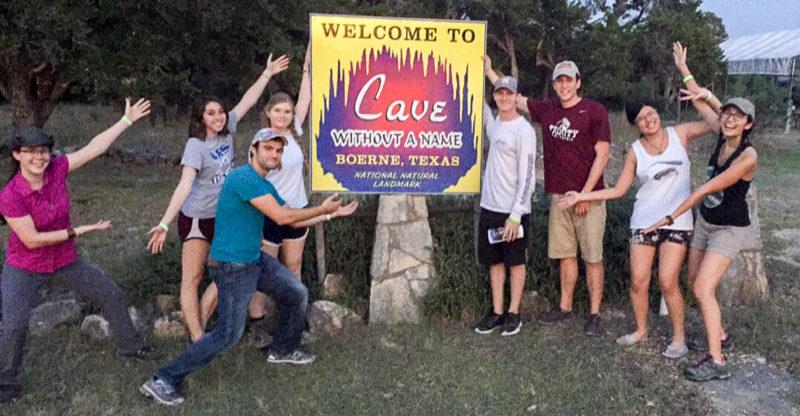This semester, the geosciences department will offer a variety of experiential learning opportunities for students interested in the field.
“We try to have field trips in virtually every class we teach. It’s not 100 percent, but it’s close, and typically, more advanced courses have longer and more advanced field trips in them, so most of our introductory courses have one-day trips,” said Glenn Kroeger, associate professor of geosciences. “For example, we teach a course called Earth’s Environmental Systems, and that course does a one-day field trip that’s really focused on understanding the geography, hydrology and geology of the Edwards Aquifer system.”
While most introductory classes are not overnight, one course “” Oceanography “” usually has had an overnight trip. However, this semester the trip will most likely be a day-trip due to damage sustained in the area after Hurricane Harvey hit.
Upper-division classes, however, tend to either have longer day trips, or feature overnight classes.
“In my paleontology course in a couple weeks, we’ll do an overnight field trip up to the Hill Country area and Brownwood, and so we’ll look at the different fossil assemblages in the rocks and study them for their biologic composition and what kind of ecosystems they represent,” said Daniel Lehrmann, professor of geosciences.
While most courses are open to all students, the department hosts a yearly week-long trip every semester, usually only open to sophomore and junior students; no prerequisites are required.
“The major’s field trip is a one-week long trip, and it happens after spring semester is over, usually in mid- to late May, and it goes to different places all over the country,” Lehrmann said. “This year it’s going to go to the Grand Canyon area, and in previous years, we’ve had it in West Texas, in the Guadalupe areas and also Big Bend area. We’ve also had it up in Wisconsin and Minnesota.”
This trip focuses more on learning field techniques, such as mapping and identifying the origins of rocks, while others are more based on rock collection.
For students who want to learn additional skills, workshops outside of Trinity also provide great opportunities.
“The trip from earlier this semester was the hydro-geo workshop, and so that’s not actually a trip that our department sponsored, instead it was the Edwards Aquifer Authority,” Lehrmann said. “We had 10 students who went there and did overnight camping. That’s a program that has a bunch of different workshops that involve hands-on work with different environmental techniques, like drilling wells and monitoring wells and using dye tracers to understand where water flows and infrared photography to find springs.”
While most of the field trips in the department occur either in Texas or the surrounding states, the geosciences department also offers study abroad options.
“The study abroad trips include the Iceland trip, which is coming up this spring and is a course that meets during the spring, and then at the beginning of the summer session,” Lehrmann said. “There’s also my study abroad course to South China, called Field Geology in China, and that went last summer for three weeks.”
With so many options available for the department, many professors stress their importance, both to the faculty, and additionally the students who are able to participate.
“We study the earth, and it’s out there; you can’t bring this into the lab,” Kroeger said. “I sometimes tell students studying rocks in a lab is similar to studying animals in a zoo “” you can learn some things, but if you really want to understand them, then you have to go experience them where they live, because oftentimes it’s the geometry, and how the rocks come in contact with each other, that tell a part of that story “” you can’t see that in a room or in a building.”
Beyond educational benefits, the field trips also foster stronger relationships for their participants.
“The students and the department are really well integrated,” Lehrmann said. “Especially for the major’s trip, it really gives the students a chance to interact and develop close relationships with their professors, which is really important.”
Students who have gone on these trips value both the experiences and memories trips enable them to have. Elliot Blake, junior geosciences major, recently traveled on the Field Geology in China trip, and agrees that these field trips are worth the travel.
“There’s just so many field trips because the geosciences department is so small; we get so many opportunities to go out into the field and really observe the natural phenomenon. This summer we went out into the field in China, and we worked really closely with the students from a university over there,” Blake said. “My favorite part of these field trips is how close how all the students in the class can get to each other.”
More information about the geosciences department can be found on Trinity’s website.







